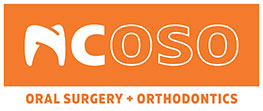Anxiety and fear are very common emotions to experience when one is about to undergo a surgical procedure. Our Surgeons and staff have undergone formal anesthesia training in a hospital setting and have the experience and knowledge to administer anesthesia in our office while delivering an outstanding level of care, along with safe, reliable results.
What Types of Anesthesia Are There?
Anesthesia can be administered locally, intravenously, or by inhalation and consists of administration of medication the effects of which are listed below:
Local Anesthesia
The surgical area will be numbed by injection of anesthetizing medication. You may still experience feelings of pressure, however, the sensations of pain and discomfort are blocked. The numbing medicine generally lasts a few hours.
Nitrous Oxide
This safe, commonly used gas is administered via a mask placed over your nose. Nitrous oxide, also known as laughing gas, creates feelings of warmth and safety, floating, tingling and will ultimately help you relax during your procedure. The gas is absorbed by the body to produce a calming sensation.
The effects of the nitrous diminish quickly following removal of the mask. You’ll also receive local anesthetic after you begin breathing the nitrous oxide and before your procedure begins. Depending on the procedure, you may be able to drive and resume typical activities following your visit utilizing nitrous oxide. It is rare for patients not to feel some relief of their anxieties with this wonderful gas.
Deep IV Sedation/General Anesthesia
General anesthesia involves the use of sedating medications that eliminate all feelings of pain and anxiety, allowing you to rest in a state of deep relaxation in which you are unaware of the surgical procedure being performed.
During anesthesia, we will monitor your heart rate and rhythm with an ECG, breathing, blood oxygen levels, and blood pressure. You will have a team of at least three (3) throughout your procedure. We will discuss and manage pain you may have after your procedure
Our team will ensure your comfort before, during, and after the procedure. You’ll rest comfortably during your surgery and emerge gradually from the effects of general anesthesia. You will be closely monitored throughout your general anesthesia procedure and will have a team in the room monitoring you and assisting with your surgery. A friend or family member who is 18 or older will need to drive you home and stay with you. You won’t be able to operate a vehicle or other machinery for approximately 24 hours following your procedure.
When discussing options for IV sedation or general anesthesia, a complete, accurate, and up to date review of your medical history is necessary to determine if you are candidate for an in-office procedure. Please remember to tell us all of the medications you are taking, recent changes in your health, past surgeries, or medical procedures and medication allergies you may have during your consultation.
These will all be reviewed again just prior to the procedure. For patients with more serious medical concerns, a consultation with either your primary care physician or medical specialist may be needed prior to surgery. In some cases, your medical condition may be too serious such that treatment in our office is not recommended in the office setting. In those cases, we will necessitate treatment in a hospital.
